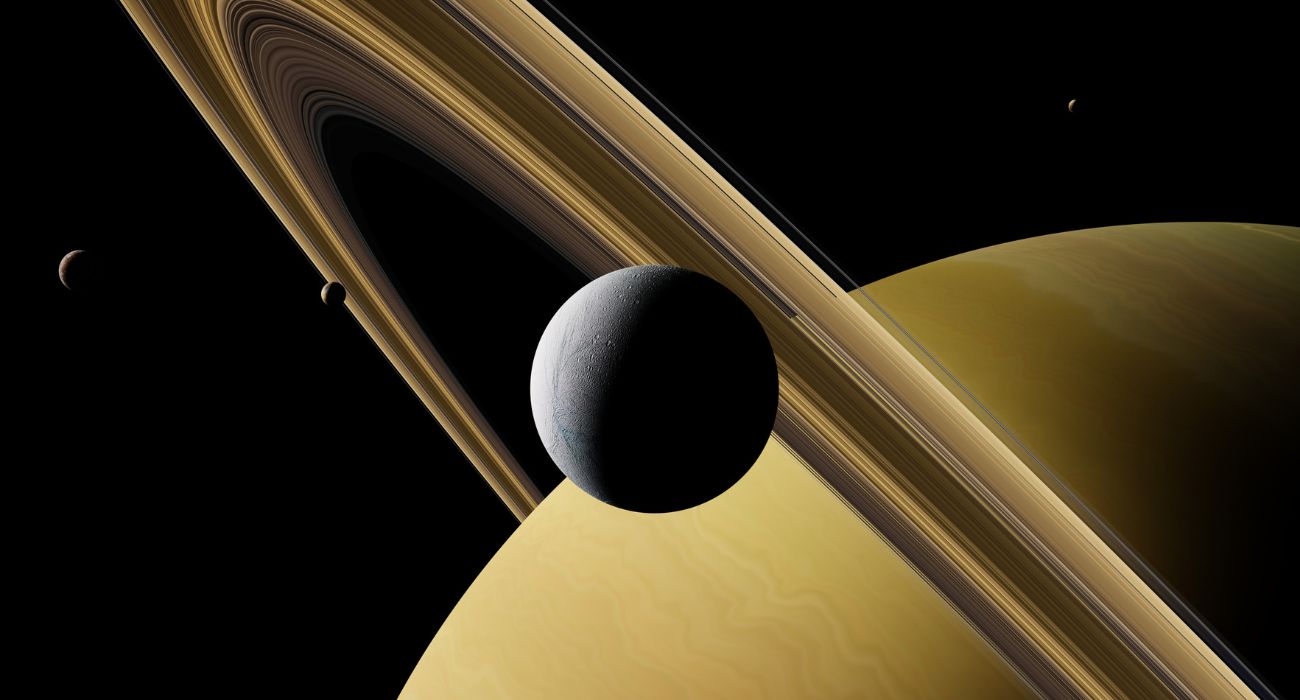Researchers have discovered phosphorus — an element essential for life — emanating from Saturn’s moon Enceladus.
Scientists detailed their discovery in a study published in the journal Nature.
Enceladus is an icy moon of Saturn that measures 310 miles across and features the most reflective surface in the solar system. NASA scientists believe this moon may have liquid water hidden beneath its crust of ice.
NASA’s Cassini spacecraft visited the moon in 2005 and discovered that Enceladus shoots icy water particles and gases from its surface at a speed of 800 mph, some of which feed Saturn’s E ring. Scientists have discovered elements such as water vapor, salts, silica, carbon dioxide, methane, ammonia, and either carbon monoxide or nitrogen within these plumes from the surface.
Due to these previous discoveries, scientists believe this moon had “most of the chemical ingredients needed for life.”
This latest study adds one more essential element to this list.
Scientists from the study analyzed data from Cassini’s Cosmic Dust Analyzer and discovered sodium phosphates in the icy water particles from the moon. They noted that phosphorus has not previously been found on “any of the ocean-bearing moons in the Solar System.”
“We previously found that Enceladus’ ocean is rich in a variety of organic compounds,” said Frank Postberg, leader of the study, according to a press release from NASA. “But now, this new result reveals the clear chemical signature of substantial amounts of phosphorus salts inside icy particles ejected into space by the small moon’s plume. It’s the first time this essential element has been discovered in an ocean beyond Earth.”
However, Christopher Glein, a co-author of the study, clarified that although life’s elements have been discovered, life itself has not.
“Having the ingredients is necessary, but they may not be sufficient for an extraterrestrial environment to host life,” said Glein in the press release. “Whether life could have originated in Enceladus’ ocean remains an open question.”
Some NASA scientists, inspired by the revelation, are revisiting the possibility of life beyond our planet.
“This latest discovery of phosphorus in Enceladus’ subsurface ocean has set the stage for what the habitability potential might be for the other icy ocean worlds throughout the solar system,” said Cassini’s project scientist Linda Spilker, according to the press release.
“Now that we know so many of the ingredients for life are out there, the question becomes: Is there life beyond Earth, perhaps in our own solar system? I feel that Cassini’s enduring legacy will inspire future missions that might, eventually, answer that very question.”






